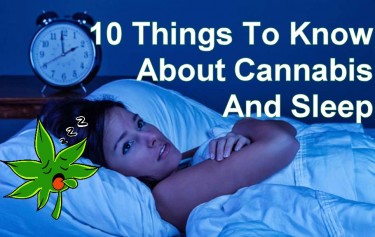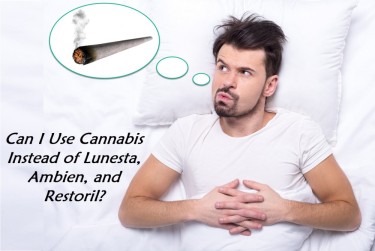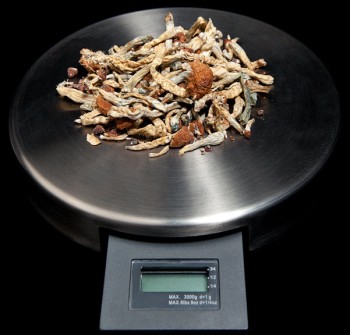
Many people consume cannabis to help them sleep. It’s one of the more common uses of cannabis within a medical context. However, a recent study aims to challenge the idea that cannabis is good for sleeping and believes it found reasons to doubt our assumptions.
In today’s article, I’ll be taking another Reginald Review to see whether there is any merit to this study or not. I’ll be using pure critical thinking and logic to analyze the data and see whether we need to worry about cannabis and sleep or not.
My gut feeling tells me that we’ll probably hear phrases such as “May cause” or “need further studies” which will indicate that the research is grasping for straws. Nonetheless, if there is any merit to the study, it would be good to know the impact of our decisions and adapt accordingly. After all, the best way to reduce harm is knowing about the shit you’re doing.
Let’s get started!
What the Study Claims
CNN reported on the study saying, “
Use of weed may actually harm sleep, a new study has found. The research, published Monday in a BMJ journal, revealed adults who use weed 20 or more days during the last month were 64% more likely to sleep less than six hours a night and 76% more likely to sleep longer than nine hours a night. Optimal sleep for adults is defined by the US Centers for Disease Control and Prevention as seven to eight hours a night.” - SOURCE
Basically, the study found that if people smoked more than 20 times per month (I know an arbitrary number) they were more likely to sleep more than eight hours at a rate of 47%.
The lead investigator Calvin Diep said, "Large population-based studies show that both short sleep and long sleep are associated with an increased risk of heart attacks and strokes, as well as the long-term progression of things like atherosclerosis, diabetes, coronary artery disease and any of the major cardiovascular diseases.”
While this may be true, unless they have tested the cannabis users for these conditions as well, then the information would by no means be causal. It might simply be a coincidence or there may be numerous other things that could cause the same results.
In fact, this is something that even the lead researcher said;
"The problem with our study is that we can't really say that it's causal, meaning we can't know for sure whether this was simply individuals who were having difficulty sleeping, and that's why they use the cannabis or the cannabis caused it” – Calvin Diep
CNN also interviewed another clinician-scientist, Dr. Karim Ladha on these findings which he had the following to say;
"Studies tell us about what happens at a population level, but on an individual level that discussion is much more personal," he said. "The studies just give us the possibilities that (marijuana) could hurt your sleep, but it may help and so we just don't know until you try it."
That's why additional studies need to be done, he added.
"Patients are spending money and time and resources to obtain cannabis right now to help with sleep," Ladha said. "I think as the medical community, we need to do everything we can to make sure that we enable our patients to make the best possible decisions for their health." – CNN
I agree with Ladha on this one, it’s the responsibility of the medical community to help inform people to make the best decisions for their health. These studies tend to do “generalized analysis” of the data and throw a wide net – however, this doesn’t mean that individually some people are actually benefiting from cannabis use.
Why are they publishing unfinished science?
Science is a process, and it’s important to keep a record of findings. However, it’s also important to note that CNN and many other media outlets have historically been against cannabis. Most of the time, cannabis is being reported on either ironically, sarcastically, or in a negative light. Only recently were news outlets forced to spin a different narrative.
If we look at funding of major networks, you’ll notice a large chunk of it comes from pharmaceutical companies – who happen to sell drugs to help you fall asleep. The difference being that one of the drugs you can grow at home while the other must be exclusively purchased by a licensed physician that also makes some nice profits on prescribing their drugs.
Does this mean we should ignore the study? I can’t say that the study was funded by pharma mainly because I haven’t gone and looked at the funding. However, I can definitely say that CNN receives money from the pharmaceutical industry and as a result may have some serious bias when it comes to reporting on the negative effects on cannabis.
After all, it was only through media networks that prohibition could have lasted so long. They help frame the narrative for the government and if by now you haven’t realized that – you’re balls deep in Soylent Green.
You’ve got some on your face!
I wouldn’t have a problem if they published these findings in an unbiased light, however if we take a look at their running headline; Marijuana may make sleep worse, especially for regular users, study finds
This headline doesn’t indicate that there is no causal relationship in the findings. It makes you believe that smoking cannabis will impact your sleep, especially if you smoke more than twenty times in a single month.
Really? Twenty times? Is that dabs? Joints? Vaping? Edibles? What about the potency? How soon before going to sleep did the users consume cannabis? Or are we simply going to use the ambiguity of the statement as a means of claiming there was any due diligence involved in this study?
While this study will certainly be cited by some anti-cannabis organization in the future, the fact of the matter that this is a study created for the purpose of building narrative. Which is a shame. They should be doing legitimate studies on these kinds of things.
There would be zero ethical consequences to doing clinical trials with cannabis from dispensaries compared to a control group. Especially, in places such as Canada.
Reginald Review concludes – “I’m calling BS!"
IS CANNABIS GOOD FOR SLEEP, READ MORE...
10 THINGS TO KNOW ABOUT MARIJUANA FOR SLEEP, READ HERE!







